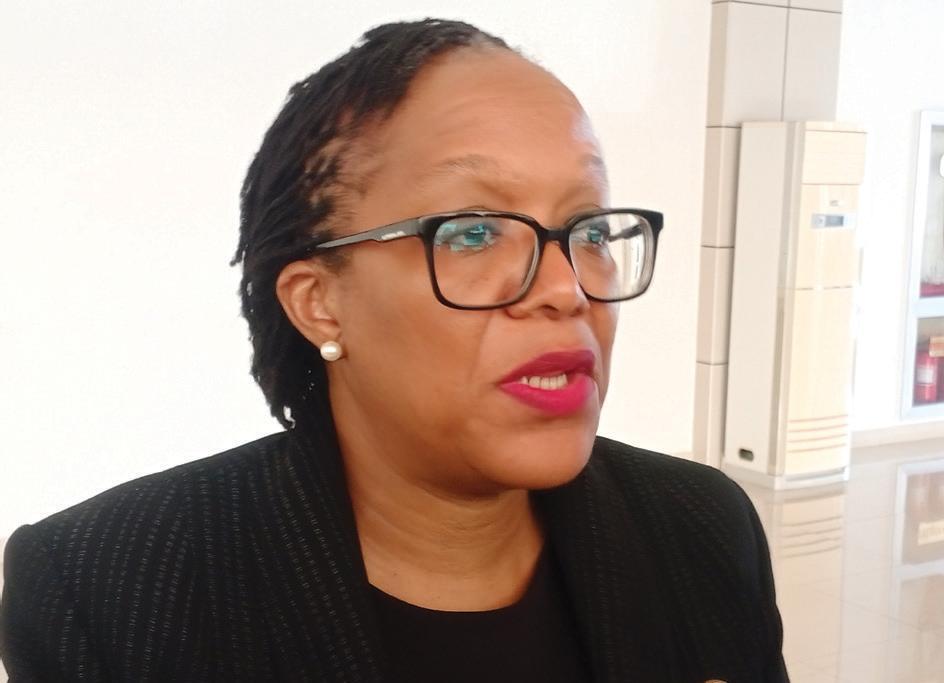bY times
Africa-Press – Malawi. MBAWALA—These are the issues we are consideringAs members of Parliament (MPs) meet today to amend some provisions of the Presidential, Parliamentary and Local Government Elections Act (PPLGEA) of 2023, at least 40,000 students and prisoners are likely to be left out of consideration by the august House.
The amendment seeks to give those who may be attending to the exigencies of duty far from where they registered a chance to exercise their constitutional right of voting.
This is happening at a time the country is preparing for Local Government, Parliamentary and Presidential Elections, to be held on September 16 this year.
Monday, members of the Legal Affairs Committee (Lac) of Parliament met with electoral stakeholders, including representatives of the Malawi Electoral Commission (Mec), Civil Society Elections Integrity Forum (Cseif) Centre for Human Rights Education Advise and Assistance (Chreaa) and the Malawi Human Rights Commission (MHRC) to discuss issues surrounding potential amendments to the law.
KONDOWE—We might have a legal disputeCseif Chairperson Benedicto Kondowe said, if the law is not amended, at least 110,000 people may not vote on elections’ day.
Kondowe said the population included law enforcement agents to be deployed during the voting process and about 30,000 students who had registered in other centres and would be in other places on voting day.
On his part, Chreaa Executive Director Victor Mhango said at least 10,000 prisoners might not get a chance to vote on polling day while Media Institute of Southern Africa-Malawi Vice Chairperson Chisomo Ngulube said the committee needed to consider journalists when amending the law so that they could be in a position to cast their vote in centres they would be operating from.
On the other hand, Mec Chairperson Judge Annabel Mtalimanja said at least 80,000 electoral staff, including security agents, would not cast a vote if the law was not amended.
MHRC Executive Secretary Habiba Osman said there was a need to fast-track the process of passing, assenting to and gazetting the amended law.
Responding to the submissions, Lac Chairperson Albert Mbawala said the committee would submit a report on the submissions made to Parliament today.
Mbawala hinted that the committee would prioritise consideration for people deployed by Mec to various centres across the country.
“It’s a very important submission and these are the issues we are considering so that tomorrow [today], we present what the stakeholders are saying so that people are able to vote wherever they are deployed by Mec. The key word is ‘people who are deployed by Mec’ not any other person,” Mbawala said.
He indicated that Mec was the only stakeholder to deploy people to various centres.
“If Misa-Malawi, for example, wants journalists to be included, they should actually go to Mec and submit the list of officers before polling day so that Mec should be able to deploy them. As such, the key word is ‘Mec deploying them’,” he said.
Mtalimanja said Mec would be compelled to release names and the number of people deployed to various centres prior to polling day once the amendment is done.
“Should the amendment go through, it means, prior to polling day, the commission is going to issue authority to vote elsewhere along with the deployment and what we were indicating to the committee is that, for purposes of accountability and ensuring credibility of the process, we will have a paper trail just to be able to show that such number of people have been issued with authority to vote at such a polling station so that we are able to account for each and every ballot that is cast at any polling station, over and above those that are registered at that centre as they appear on the voters register,” she said.
Mtalimanja was quick to warn that widening the scope of the amendment would affect accountability of the elections.
“We cannot open the scope too wide because we will not be able to account for the processes. So, if we take, for instance, students—if we open that scope, then it means the scope will be too wide. We will not be able to account for who voted elsewhere for us to be able to ensure credibility of the processes. If you were following the discussions before the committee, perhaps the Ministry of Education can also look at [making] arrangements to ensure that students who registered are able to vote at places they registered at before. If we also recall, during the transfer period, we were emphasising this part, where we were telling students that they need to ensure that their registration is at a place where they will be able to comfortably cast their vote [on polling day],” she said.
Victor MhangoIn an interview, Kondowe warned that failing to accord anyone a chance to vote through the amendment of the law would lead to legal consequences.
“If we are not careful enough, we might have a legal dispute, which we believe we can avoid,” he said.
Mhango said the country needed to be doing thorough scrutinisation of bills before passing them to avoid anomalies in future.
“Each and every person deserves to vote no matter what. The population of the prisoners, if given a chance to vote, has the potential to change the outcome of elections,” he said.
The PPLGEA number 10 of 2023 states that a registered voter shall exercise his or her right to vote at a polling station located at the registration centre where he or she registered or has been transferred to in accordance with this Act.
Source: The Times Group
For More News And Analysis About Malawi Follow Africa-Press






